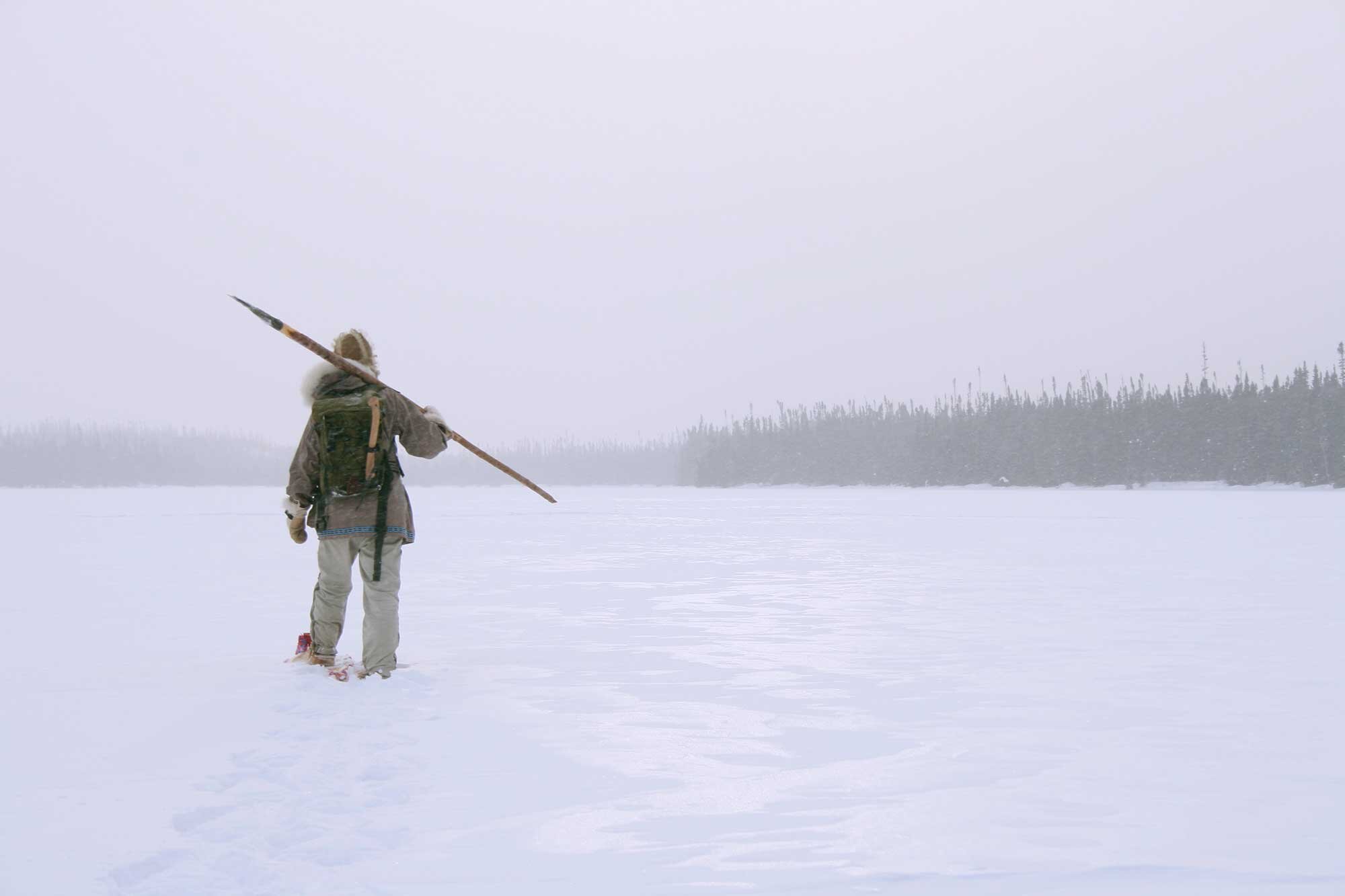
Urban city girl, turned wilderness adventurer, mother & academic, Lisa is leading the field in exploring the relationship between Bushcraft & Indigenous knowledges.
Who is Lisa?
“Bushcraft is about learning to see and access ‘affordances’ in the landscape.
What our environment ‘affords’ us is dependent upon our skill”
Lisa Fenton
Wilderness Bushcraft Educator, Ethnobotanist, and Environmental Anthropologist.
Urban city girl, turned wilderness adventurer, mother & academic, Lisa is leading the field in exploring the relationship between Bushcraft & Indigenous Knowledges, land-based survival technologies, and bushcraft skills for education and wellbeing. Having written the first doctorate in the Ethnobiology of Bushcraft and its relationship with traditional ecological knowledge systems, Lisa has created a Postgraduate MA Bushcraft pathway, offered by the University of Cumbria, Institute for Science, Natural Resources & Outdoor Studies.
Far from being an Ivory-tower academic, however, Dr. Lisa Fenton has instructed bushcraft and survival techniques for two decades, drawing from a wealth of experience that includes teaching thousands of students, across all major biomes, as well as leading international conservation projects, and contributing to mainstream media developments.
Lisa is passionate about the importance of integrating bushcraft and survival field-skills with academic insight into the histories, relationship to Indigenous knowledges, philosophical and theoretical contexts. The Ethnosphere, with all its diversity, is intricately connected with the diversity of the biosphere. The relationship between these two spheres, she suggests, is one of traditional, folk, indigenous knowledge, perceptions and land-based skill. This, Lisa says, is critical in our future consideration for Re-wilding landscape ecologies. Dr Lisa Fenton is uniquely skilled and is excited to explore new opportunities that develop our relationship with nature.
After serving her apprenticeship with Ray Mears, and the world-renown Woodlore organisation, Lisa created and ran her own bushcraft educational body, Woodsmoke, in the Lake District National Park for 17 years. During that period she took an MSc in Ethnobotany from the University of Kent and in conjunction with Kew Gardens. Exceptionally, she was invited to continue to study for her doctorate full-time in the department for Conservation & Anthropology, as part of the Durrell Institute of Conservation & Ecology. Her research in Bushcraft & Indigenous Knowledge was considered to have made a completely new contribution to knowledge, and following her completion, she took up her current post as a member of academic staff at the University of Cumbria, at the beautiful Ambleside campus, set in the heart of the Lake District National Park. She is a lecturer across undergraduate Outdoor Studies degree programs and postgraduate Experiential and Outdoor Learning Masters degree.
Lisa is a leading choice for press, radio, and television commentary on all bushcraft and outdoor survival issues. She has been featured on Channel 4’s Loose Women, Russel Brand radio X, in The Times, BBC Countryfile podcasts, Radio 4 Women’s Hour and most recently has been asked to co-host the 2022 Global Bushcraft Symposium in the UK.
“Surrounded by the built landscape, it has become difficult for many people to relate to the environment. This alienation from nature has contributed to the environmental
problems of the contemporary world.
But at the same time, it has triggered a search for new ways of relating to nature”
Lisa Fenton
Background
Following a 4-year apprenticeship in the 1990/2000s with BBC TV presenter and bushcraft expert, Ray Mears, Lisa begun a dedicated career exploring and studying wilderness bushcraft and survival skills. For almost two decades Lisa has developed and delivered UK-based training courses, lead overseas journey’s and conducted research expeditions in remote parts of the world. During this time, Lisa learned bush-skills and traditional land-based technologies from Indigenous and First Nations peoples; knowledges which are being rapidly eroded. Now regarded by her peers as the leading academic expert on Bushcraft, Dr. Lisa Fenton remains deeply committed to the importance of this reservoir of nature-knowledge, and to passing on skills, knowledge and perspectives to a wide audience, as well as future generations. No matter your age or experience, there is always something to learn about our human connection to plants, trees, wildlife and fungi in both ‘wild’ and ‘urban’ spaces. As such, Lisa offers academic insights and expertise in bushcraft practices through a range of public talks, private seminars, consultancy, written articles, popular media contributions, and her own collection of short courses, workshops & experiences.
Anthropologist Wade Davis asserts that “just as there is a biological web of life known as the Biosphere, there exists a cultural fabric of existence known as the Ethnosphere”, In bushcraft practice this is the cultural knowledge of how humans can transform the materials of the natural world., Through both her academic research activities and through a myriad of local and global experiences, across a variety of biomes, Lisa feels sure that bushcraft engenders a way of being with landscape ecologies that knits us into the very fabric of the materials and conditions of our natural environment. Learning from Indigenous and First Nations peoples, who have retained the skills to live in and utilise the vast possibilities a landscape can afford us, for clothes, tools, food, medicines, and shelter, Lisa advocates an approach to bushcraft skill and study that respectfully moves towards these traditional ecological knowledges; the Ethnosphere.
Currently
At present, Lisa combines her academic role with consulting across the range of media, commercial, and expeditionary applications of Bushcraft. A frequent speaker, and keynote at professional and academic conferences, Lisa manages her bushcraft life in tandem with being a mum to her 10 yr old son.
Lisa is a fellow of the Centre for National Parks & Protected Areas (CNPPA), and an executive fellow of the Wilderness Bushcraft Society. Her most recent field research, for Cumbria University, involved travelling with an academic colleague to The Gambia to study the critically endangered Temminck’s Red Colobus Monkey. Their field research resulted in the identification of the worlds largest population of these rare primates.


